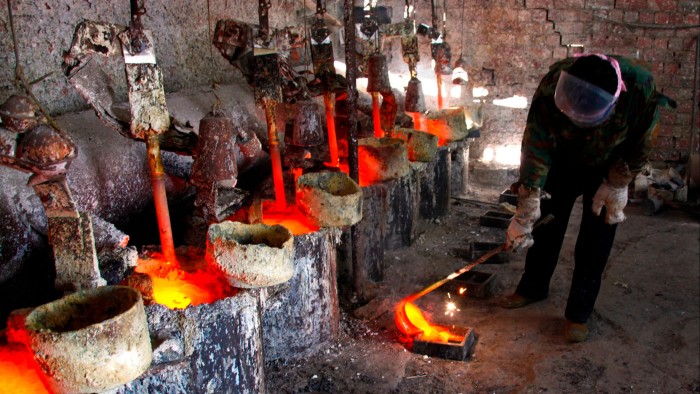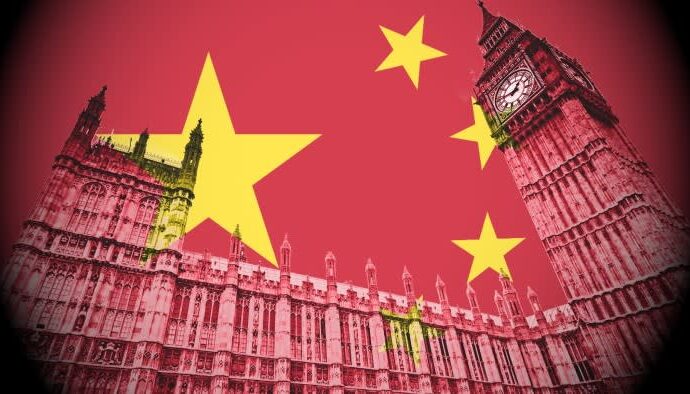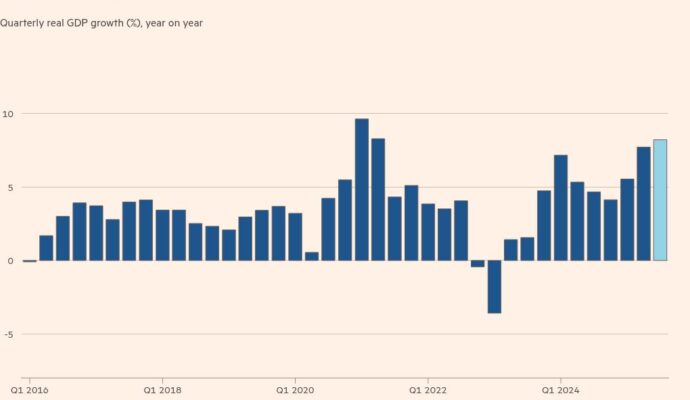
This article is an onsite version of our Europe Express newsletter. Sign up here to get the newsletter sent straight to your inbox every weekday and fortnightly on Saturday morning. Explore all of our newsletters here
Welcome back. De-risking rather than decoupling. This neat phrase to describe the EU’s way of dealing with China was first coined by Ursula von der Leyen in early 2023 before becoming official EU policy a few months later. The European commission president frequently recites it. But the formulation is looking a little threadbare. There has been too little de-risking in terms of trade and investment and now European governments and companies are under pressure to decouple from both China and the US.
I’m at ben.hall@ft.com.
Dutch agreement
This week, the Netherlands waded into the struggle between the US and China for supremacy in semiconductor technology. The Dutch government seized control of Nexperia, a maker of basic chips for cars, consumer electronics and industrial applications, from its Chinese owner and chief executive Zhang Xuezheng.
It was a drastic and risky move.
“As the second-largest EU investor in China and trading nation that positions itself as the gateway to Europe, stable Sino-Dutch relations are key to the Netherlands,” Xiaoxue Martin, Tobias Koster and Raoul Bunskoek, researchers at the Dutch foreign policy think-tank The Clingendael Institute, wrote in a report earlier this year. “Thus, the Netherlands has been and will continue to be strongly affected by US-China competition. With its open economy, the Netherlands is vulnerable to global economic fragmentation and protectionism.”
Home to ASML, the world’s leading maker of chip manufacturing equipment, the Netherlands is no stranger to US-China tensions. The Hague has complied with US curbs on exports of ASML’s most advanced machines to China without, so far, incurring the wrath of Beijing.
ASML is a much more important piece in the chip wars than Nexperia, a maker of specialised but low-margin semiconductors. But using an emergency production law to take control of a company whose sale to a consortium of Chinese investors was approved by the government in 2017 was still an extraordinary step.
The China Chamber of Commerce to the EU described it as a “modern act of economic banditry”.
Clawback
The Nexperia seizure fits into what Reva Goujon and Juliana Bouchaud of the consultancy Rhodium Group describe in a report as Washington’s “unspoken mission to claw back strategic assets from China”.
Unwinding dependencies on Chinese-origin or Chinese-controlled critical technologies and infrastructure through tariffs, bans or setting up new production lines can be difficult and slow, they write. So making it impossible on national security grounds for a strategic asset to remain in Chinese hands offers a “swifter path”.
The Hague has denied acting under instruction from the US. In a letter to parliament, economy minister Vincent Karremans said he intervened because the actions of Zhang threatened the “preservation of crucial technological knowledge, as well as production and development capacities in the Netherlands and Europe”.
The actions “include, among other things, the improper transfer of production capacity, financial resources, and intellectual property rights to a foreign entity owned by the CEO and not affiliated with Nexperia”, Karremans wrote.
American pressure
The Dutch court decision allowing the government to take control of Nexperia provides more details of these claims. But it also shows The Hague was acting under pressure from the US. The US in December placed Zhang’s company Wingtech on its “entity” list, subjecting it to export controls. And, as the Dutch government and Zhang argued over steps to ringfence the chipmaker’s European operations, the US told The Hague a rule change would extend the blacklisting to Nexperia too. When that rule came into effect on September 30, the Dutch took over the reins of the company.
Beijing has hit back by banning the exports of some of Nexperia’s products that are assembled in China. This, says Goujon, will only encourage other manufacturers to diversify their packaging operations away from China. So the decoupling is accelerating.
It is also a reminder that in the complex business of semiconductors, just because you manufacture chips in Europe doesn’t necessarily make you less dependent on China for other steps, like assembly. It’s one reason to question the EU’s ambition under its chips Act to produce 20 per cent of the world’s chips by 2030. Another is that the EU is way off hitting that target, with large manufacturing projects in Europe stalled or abandoned.
The US has weaponised semiconductor technology in the race with China for technological and military supremacy; China meanwhile is exploiting its dominance in critical raw materials.
Rare earths weaponised
As the Nexperia case was coming to a head, China unveiled sweeping curbs on exports of rare earths, including new rules akin to those used by Washington to block chip technology exports to China from third countries.
Western companies have warned the rare earths restrictions would lead to broken supply chains, higher prices and delays to production, with the auto and defence sectors particularly exposed. Partial curbs introduced by China already cause major disruption for European manufacturers.
Europe is arguably more vulnerable than the US because of its big bets on electric vehicles and wind turbines, which require a lot of rare earth elements.
The EU’s critical raw materials act, which came into force last year, sets the right objective of diversifying supplies. But progress has been slow. A €1bn special German fund for investing in critical minerals was paused. According to Rebecca Arcesati and Jacob Gunter of the Berlin-based Mercator Institute for China Studies, the EU needs to be more decisive in drastically reducing its rare earth dependencies, using subsidies, regulations and acting as buyer of last resort to encourage new sources of production.
Inflection point
Beijing’s rare earths offensive comes as European officials are reflecting on a tougher approach to China. Brussels sees no serious Chinese effort to reduce its industrial overcapacities flooding European markets. The EU’s contentious tariffs on Chinese electric vehicle imports have made barely a dent in sales, while Beijing has hit back at brandy, pork and dairy imports from the bloc.
The “painful of episode” of EV tariffs has “exposed the flaws” in Europe’s trade defences, says Noah Barkin in this note for the German Marshall Fund.
“In a world where China and the US are moving fast and hitting hard, the EU has been too slow, too timid, and too wedded to a rulebook the others have torn up.”
On a trip to Beijing in July von der Leyen said the EU-China relationship was at an “inflection point”. Restrictions on steel imports, local content rules for public procurement, technology-sharing requirements for new Chinese investment projects in the EU, and a new economic security strategy are all possible tools to give Europe leverage. The question is whether EU capitals are willing to use them.
Misha Glenny on why Europe stands to be the biggest loser from China’s rare earth restrictions
Pick of the week
How Vladimir Putin’s history rant in Alaska nudged Donald Trump closer to Ukraine (for now) by Max Seddon, Henry Foy, Christopher Miller and Amy Mackinnon


